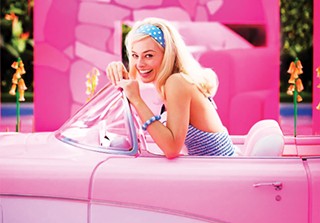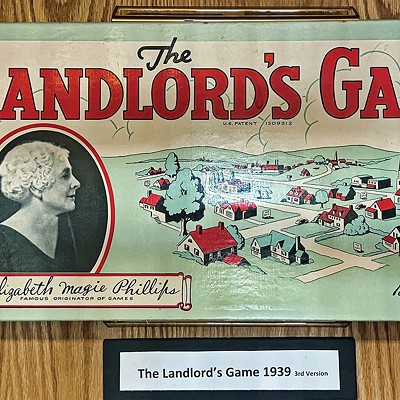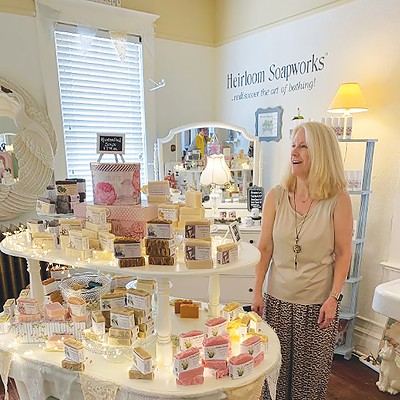I have never been a Barbie fan.
By the time she came rolling into town in her pink convertible, I was starting to age out of the few dolls I enjoyed. I did end up getting, but not playing much with, Midge, a decision therapists could ponder for days. Why did I opt for a best friend instead of the star of the show?
About the time my baby daughter joined our family, my SSU/UIS students and I began researching Barbie's harmful effects on girls' body image. After all, her figure is impossible and her constant tiptoes a joke. Indeed, scholars note that if Barbie were a real person, she would have to walk on all fours because of her body proportions. Her long, skinny neck could not possibly support her larger-than-life head. Several researchers have linked eating disorders to such unrealistic cultural images as Barbie.
I also had an aversion to the stereotypical "pink" aisle at toy stores, a spot my son also went out of his way to avoid, lest a buddy see him there. As we all know, Barbie is anything but anti-pink.
So it was natural that I tried to steer my daughter away from Mattel's influence. I bought her more realistic-figured dolls, but her friends and the marketing machine had a bigger draw. She got Barbies as birthday presents and bought a couple with her own money. When I finally caved to the pressure, I did manage to make sure she had an ethnically diverse collection and plenty of other options for playing. I talked with her about Barbie's unsustainable body, but I still cringed when I saw her and her friends playing with the dolls.
Now my dilemma is the smash movie, Barbie. Early on, I said I wouldn't see it, of course. Not only did it strike a discordant note with my worries over young women's self-esteem, but it also stirred up resentment with its relentless marketing. Why would I want to give my money to greedy and, to my mind, unethical filmmakers?
From where I sat on my high horse, I observed several surprises. First, Texas Senator Ted Cruz and an assortment of other extreme conservatives began criticizing the movie as too "woke" and filled with "feminist propaganda." Generally, anything Cruz is against, I am for.
Then several close friends saw the movie. These were friends with bona fide feminist credentials and opinions I respect. They talked about the good message the film conveys about women and the fun they had watching it. My Facebook feed filled with enthusiastic endorsements of Barbie and photos of friends dressing in (gasp!) pink to go to the theater.
I started reading reviews and other articles about the movie. Many writers mentioned the spot-on casting, an abundance of clever writing and the director's feminist intentions. The more I talked with friends and the more I read, the more curious I became.
Finally, I gave in to my curiosity and forked over money for a ticket. I did not don a pink outfit, however.
Friends and reviewers were right. The over-the-top costumes, the pink-saturated set design and the quick-witted dialogue were all fun. Margot Robbie and Ryan Gosling as Barbie and Ken must have had a good time making the film alongside Kate McKinnon, America Ferrera, Will Farrell and Rhea Perlman. Add to that Helen Mirren as narrator with asides so clever I laughed out loud.
As Barbie encounters a male-dominated world outside of Barbieland, she awakens to reality. Ken's subsequent actions also reinforce director Greta Gerwig's intent of showcasing the patriarchy of American society. The plot is thin but I didn't expect much from a film about a doll come to life.
Still, the messages about sexism resonate, or at least I hope they do, with girls and young women who see the movie. Those messages are sometimes so over the top they would be difficult to ignore. One glaring example is the absence of any women among Mattel's chief brass. Another is Ferrera's fast-paced listing of the obstacles women face in advancing their standing. It would have been funnier if it weren't true. If viewers weren't aware of this, then perhaps Barbie at least serves them a sugar-coated helping of reality.
While Gerwig clearly wants viewers to recognize women's struggles, she also touches on those of men in modern society, leaving everyone with something to take away from the film's pink-filled world.
I left the theater wishing my daughter could have seen it with me and wondering if she would have told me my objections to Barbie were misplaced all along. The movie didn't convince me of that, but I am glad I saw it. It is always good to challenge one's assumptions – just like Barbie does in Barbie.
Among the classes Mary Bohlen taught during her 30-year career at University of Illinois Springfield were several that examined media's influence on children, adolescents and adults. She lives in Springfield and avoids buying Barbies for her two granddaughters.























